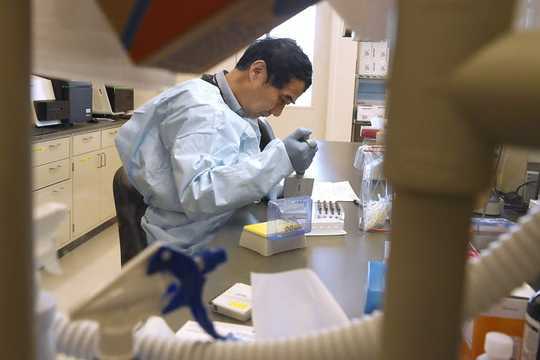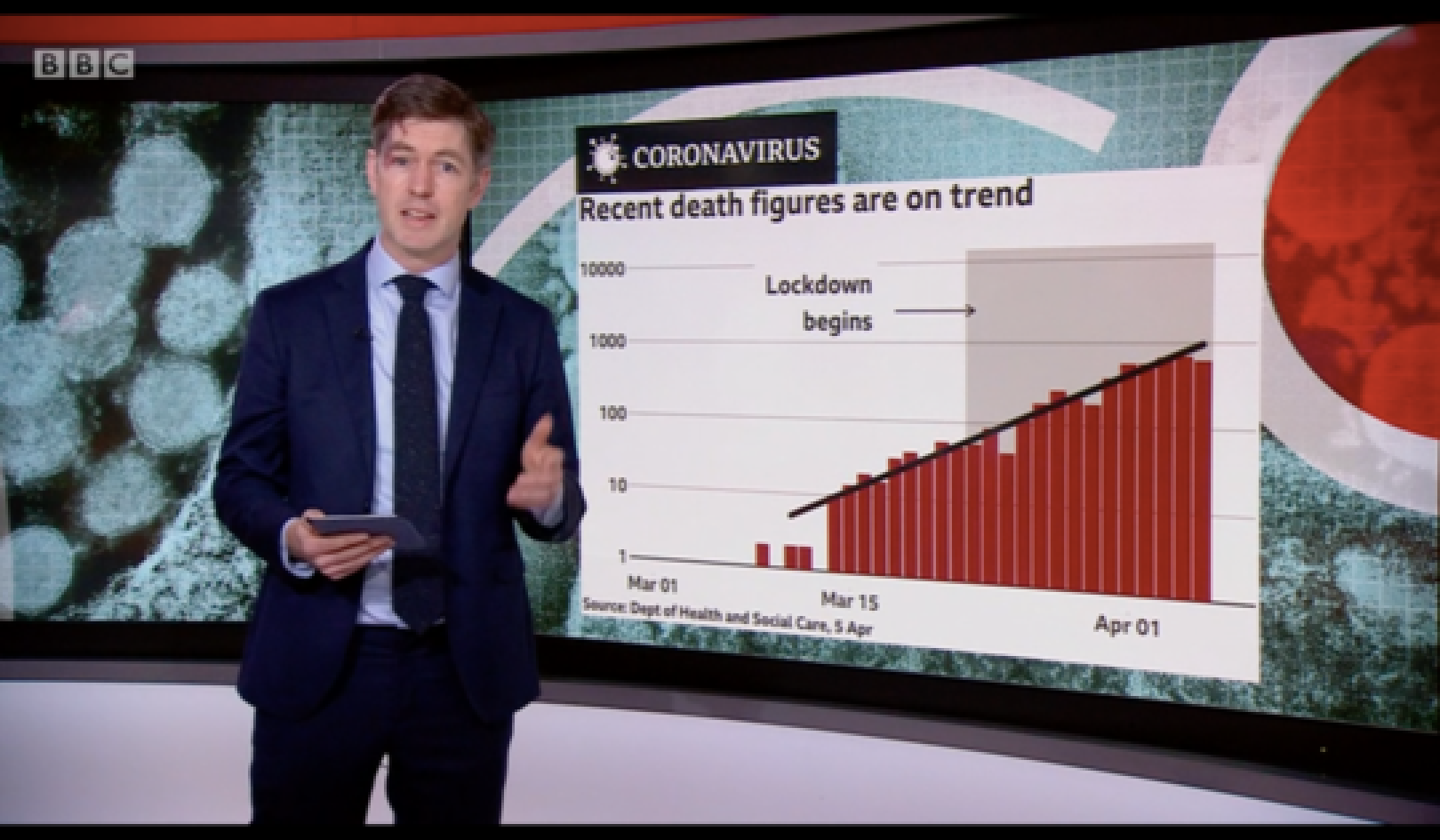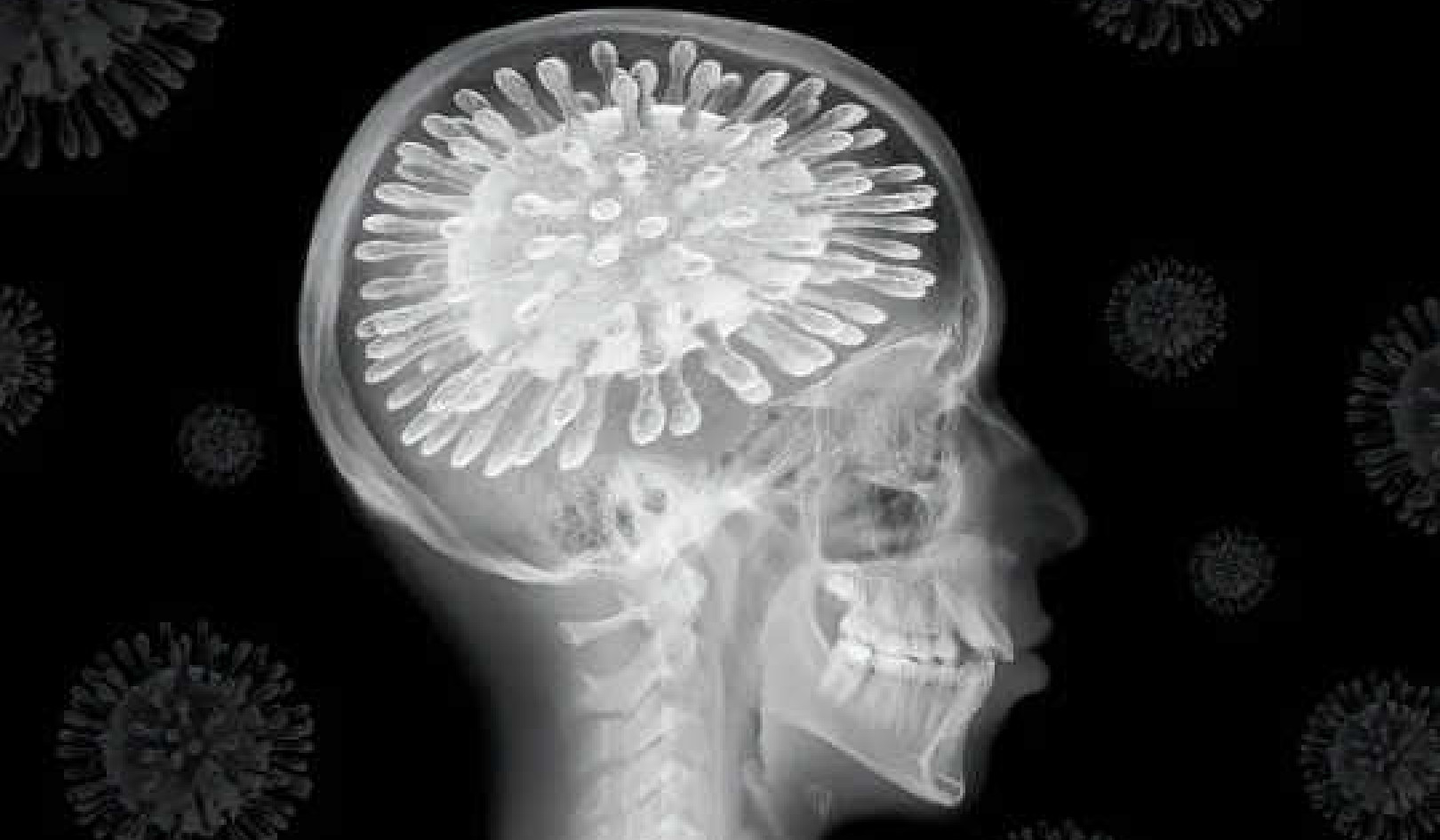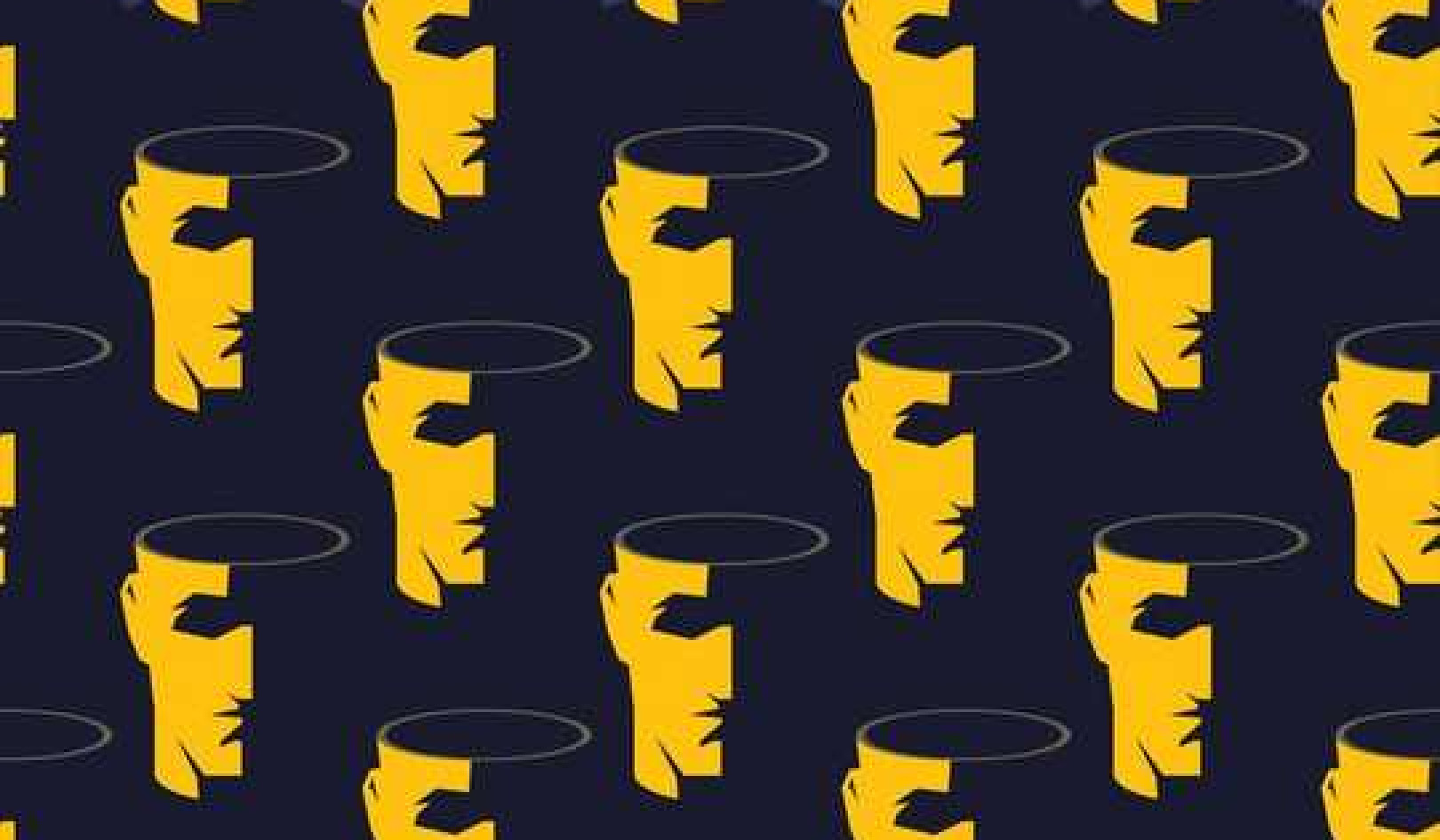 Microbiologist Xiugen Zhang working at the Connecticut State Public Health Laboratory. AP Photo/Jessica Hill
Microbiologist Xiugen Zhang working at the Connecticut State Public Health Laboratory. AP Photo/Jessica Hill
The coronavirus epidemic is a health crisis that threatens Americans’ quality of life. Who do Americans trust to lead them through it?
The public opinion firm YouGov has reported that public trust of scientists fell from 2013 to 2017. But trust in scientists and the benefits of science remains high, according to statistics from the National Science Foundation.
We were interested in whether that trust persisted in the midst of the coronavirus epidemic. From Feb. 17 through Feb. 25, we asked 1,279 Americans whether they were liberal or conservative and how much they trusted different people and groups to reduce the risk of a coronavirus epidemic in the U.S.
Not surprisingly, people’s politics predicted their trust in politicians. Among the 500 conservatives in our sample, 64% reported moderate to extreme trust in President Donald Trump. Less than 10% of the 779 liberals reported similar trust in him.
However, politics did not predict who was most trusted. Across the political spectrum, the most trusted were the Centers for Disease Control and Prevention and doctors.
In fact, 75% of liberals and 80% of conservatives reported moderate to extreme levels of trust in the CDC to reduce U.S. risk of a coronavirus epidemic. Seventy-seven percent of liberals and 80% of conservatives also trusted doctors and other clinicians.
These groups likely earned the public’s trust by providing information that mattered in comprehensible and accessible ways.
These findings are important because messages from trusted sources are typically more persuasive. People follow recommendations more when they come from a trusted person or group. As a result, when someone you trust tells you to avoid close contact with sick people, not touch your face, and cover your coughs and sneezes with a tissue, you are more likely to do so. This suggests that getting messages from nonpartisan experts is more likely to help reduce U.S. and global disease spread.
Our findings also indicated that most people trust their ability to reduce their own coronavirus risk. But they need accurate and actionable information to know how. Getting messages from trusted sources likely will have a bigger impact, but the federal government wants control over coronavirus messages sent out by health officials.
Other individuals and groups were less trusted than the CDC and doctors. We plan to monitor changes in trustworthiness for these individuals and groups and others over time. We expect perceived trust to change as the situation changes.
With this emerging threat, all Americans need the highest quality science transmitted by trusted sources. Doing so will encourage healthier decisions as the number of cases around the world continues to rise.
About The Author
Ellen Peters, Director, Center for Science Communication Research, University of Oregon; Brittany Shoots-Reinhard, Research Assistant Professor of Psychology, The Ohio State University; Michael Silverstein, Doctoral Student in Psychology, University of Oregon, and Raleigh Goodwin, Doctoral Student in Psychology, University of Oregon
This article is republished from The Conversation under a Creative Commons license. Read the original article.

Related Books:
The Fearless Mindset: The Empowering Secrets to Living Life Without Limits
by Coach Michael Unks
This book offers insights and strategies for overcoming fear and achieving success, drawing on the author's experiences as a coach and entrepreneur.
Click for more info or to order
The Gifts of Imperfection: Let Go of Who You Think You're Supposed to Be and Embrace Who You Are
by Brené Brown
This book explores the challenges of living with authenticity and vulnerability, offering insights and strategies for overcoming fear and building a fulfilling life.
Click for more info or to order
Fearless: The New Rules for Unlocking Creativity, Courage, and Success
by Rebecca Minkoff
This book offers insights and strategies for overcoming fear and achieving success in business and life, drawing on the author's experiences as a fashion designer and entrepreneur.
Click for more info or to order
Feel the Fear . . . and Do It Anyway
by Susan Jeffers
This book offers practical and empowering advice for overcoming fear and building confidence, drawing on a range of psychological and spiritual principles.
Click for more info or to order
The Anxiety Toolkit: Strategies for Fine-Tuning Your Mind and Moving Past Your Stuck Points
by Alice Boyes
This book offers practical and evidence-based strategies for overcoming anxiety and fear, drawing on a range of cognitive and behavioral techniques.
























